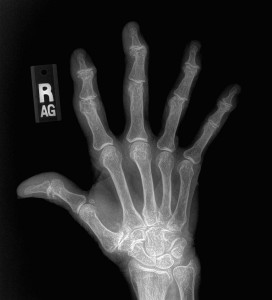Do glucosamine and chondroitin sulfate supplements help osteoarthritis pain?
Many patients ask this question in the office. The answer is not so simple. Manufacturers of glucosamine and chondroitin sulfate promote their products as “joint protective” and “supportive of joint health” and claim to reduce pain and increase joint mobility. Some advertisements also claim that their products can rebuild damaged or arthritic joints. In the hope for a cure for arthritis, sales of glucosamine and chondroitin have skyrocketed worldwide.
Do joint supplements really work?
There are mixed results in published studies. Some studies have found a significant benefit, while others have not. The most respected study to date was sponsored by the National Institutes of Health (NIH) and was published in the Journal of the American Medical Association (JAMA). This study, called the Glucosamine/Chondroitin Arthritis Intervention Trial (GAIT), involved over 1,500 patients. The researchers compared the effectiveness of glucosamine, chondroitin sulfate, versus a placebo sugar pill in patients with knee arthritis pain. What the researchers found was that although there was no difference in outcomes overall between the groups of patients, they found significant improvement in patients with moderate to severe arthritis pain when they took a combination of 1500 mg of glucosamine and 1200 mg of chondroitin sulfate per day for 24 weeks. This suggests that these medications may be beneficial in some people when taken in combination for several months.
Additionally, a study from Europe in 2011 evaluated chondroitin sulfate for patients with hand arthritis pain. The patients who took 800 mg of chondroitin for 6 months had less pain, increased function, and decreased morning stiffness compared to the patients who took the placebo sugar pill. However, this study was sponsored by the manufacturer of the product, and may be subject to bias.
In the United States, glucosamine and chondroitin sulfate are sold as nutritional supplements over-the-counter. The Food and Drug Administration (FDA) does not oversee or regulate the quality of these products or critically review the claims made by advertisements. Therefore, keep in mind that what you see on TV or what you read on the label, may not always be accurate.
Turmeric is another common product used as a nutritional supplement. Turmeric is derived from a root grown in Asia, and it has anti-inflammatory properties. The active ingredient in turmeric is curcumin. This has been used in Asian cooking and traditional Eastern medicine for many centuries. Some studies in patients with osteoarthritis have shown decreased pain when taking turmeric compared to placebo. There are very few downsides to trying turmeric for joint pain. More research needs to be completed to learn more about long-term effectiveness.
Are arthritis supplements safe?
No medicine is risk free. However, most studies report mild side effects from glucosamine, chondroitin, and turmeric which resolve once the medication is discontinued. The most common side effects are nausea, diarrhea, and stomach pain. Serious adverse effects are very rare. They are considered to be much safer than traditional pain meds or anti-inflammatory drugs (NSAIDs), which can cause stomach ulcers, high blood pressure, kidney problems, or intestinal bleeding, especially if taken for long periods of time.
What dose is recommended?
There has not been agreement among studies nor a recommendation by the FDA regarding the dosage. However, many current studies follow the GAIT study protocol of 1500 mg glucosamine and 1200 mg chondroitin sulfate orally per day. This dose combination is widely available in retail stores today. Also many studies suggest that 3 to 6 months of treatment is needed to determine if the product is helping.
In the trials of turmeric, the dosage was not standardized. We therefore cannot conclude what is the best dose to take. However, many trials used 1000 mg per day of curcumin, and adverse events were uncommon at this dose. Very high doses are not advisable due to potential side effects.
What is the bottom line on these supplements?
Hopefully, future studies will clarify the picture. Currently, I think that glucosamine and chondroitin can help reduce arthritis pain in some patients, but the products have to be taken for several months to find out. These supplements certainly do not work for everyone, and they are not a “cure” for arthritis. I also think that they have low side effects and are safer than NSAIDs (non-steroidal anti-inflammatory drugs). I also think that turmeric can be helpful to reduce inflammation and arthritis symptoms. Please talk to your doctor if you have more questions.

